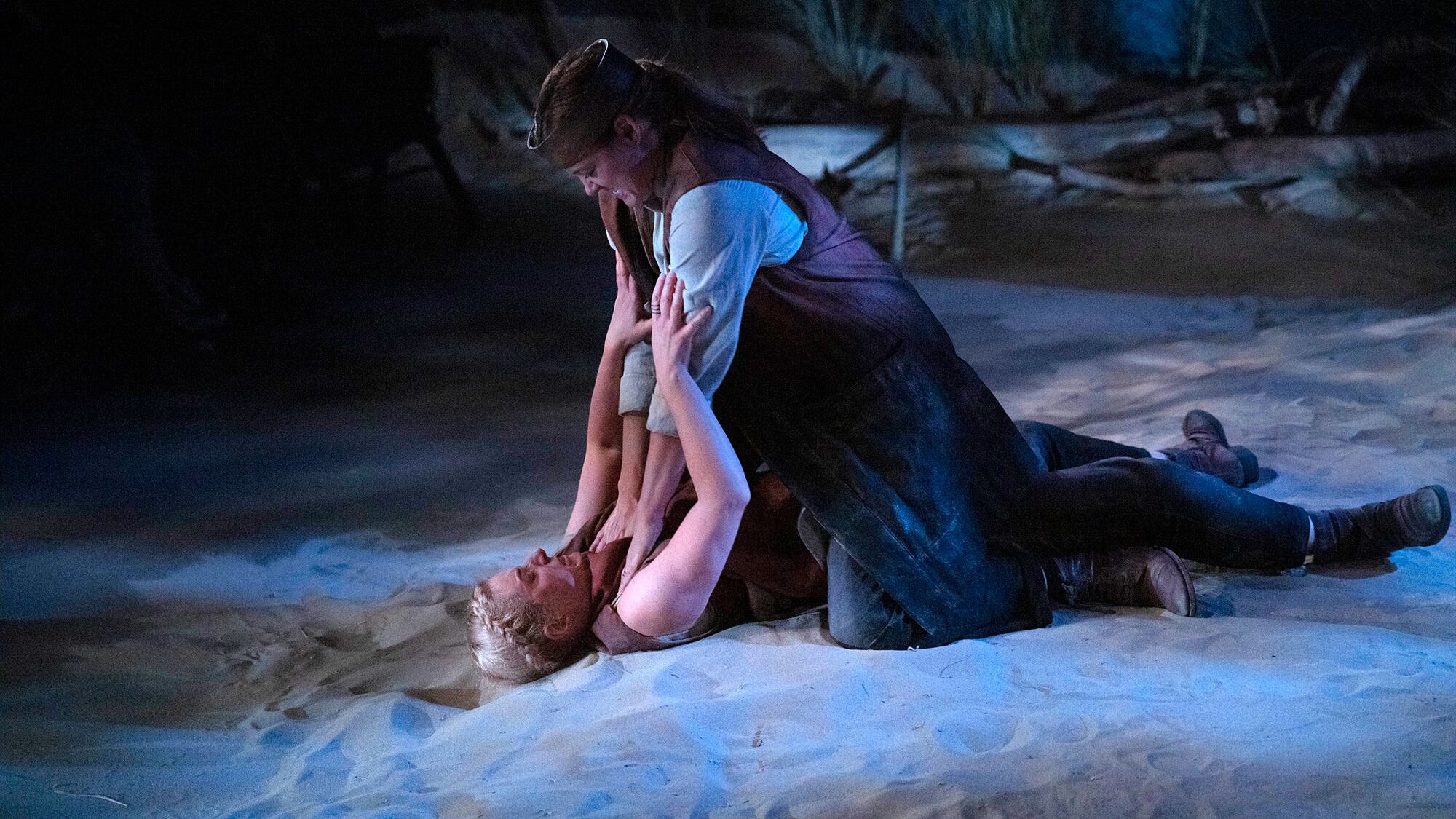If William Shakespeare's Macbeth were an accurate portrayal of the eponymous 11th century Scottish king, it would be a lot less fun.
While the Bard's version of the character is a coward spurred to conquest by the prophecy of three witches, the actual Macbeth is remembered for his 14-year reign and commitment to Christianity. Shakespeare contorted the facts to create a ghoulish tale, embedding reinvention into the play's DNA.
The story continues to evolve in Portland Center Stage's minimalist production, with mixed results. While the actors—all of whom are women—beautifully embody the rage and lust of the characters, a number of creative choices (including the decision to stage the entire play on an unusually sparse set) pay off only intermittently. This Macbeth is neither a triumph nor a tragedy. It's a bold take on an old tale that fascinates and frustrates in equal measure.
In the pantheon of Shakespeare sagas of vile rulers, Macbeth is more disturbing than Richard III, which leaves you both sickened and impressed by the heights of Richard's brutality and intellect. What distinguishes Macbeth is the fact that he is a slave to the ambitious wife who orchestrates his rise and the witches whose visions of violent glory spark his hunger for power. When he turns homicidal, he's both appalling and pathetic.
As Macbeth, Dana Green skillfully captures that contradiction. She and Chantal DeGroat (Lady Macbeth) show us the extent of the couple's toxicity—the way Macbeth's greed and weakness make him an ideal avatar for his cruel, clever spouse. No image better sums up their bond than the sight of Green slumped in a chair while DeGroat possessively touches her shoulders, like a driver steering a dopey but powerful car.
The only other actor in the cast is Lauren Bloom Hanover, and it's easy to see why director Adriana Baer went with a three-member cast—it lends an air of intimacy to the play's horrors. It also burdens the actors, who are tasked with playing multiple characters. While their ability to shift personas is impressive, it's awkward when two of the witches have to turn around and abruptly become Macbeth and Banquo.
A similar problem bedevils the set, a sandy mound adorned with a square archway and some pieces of wood. The idea of Macbeth on a beach is irresistible—it's chilling to watch people kill and die for a small, barren swath of seaside land, and the sight of Lady Macbeth scrubbing her hands with sand in the "Out, damned spot!" scene is brilliantly unsettling. Yet the set's openness is at odds with the claustrophobia the narrative demands. Macbeth terrifies because it speaks to the most paranoid part of our minds—the part that believes assassins and conspiracies lurk at the end of every shadowy corridor.
Yet this Macbeth still compels. The decision to cast women in every role may not drastically alter the play—aside from signaling that ambition, avarice and vengeance aren't the sole property of a single gender—but it's exhilarating to watch Green revel in power-mad mania, not least of all because Shakespeare's best-known works rarely give their female characters the chance to be entertainingly villainous. Green isn't a female version of Macbeth—she is Macbeth, and she makes you wonder what other feats of unconventional casting may yet refresh the Bard's dark masterpiece.
SEE IT: Macbeth is at Portland Center Stage at the Armory, 128 NW 11th Ave., pcs.org. 7:30 pm Tuesday-Wednesday, 11 am and 7:30 pm Thursday, 7:30 pm Friday, 2 and 7:30 pm Saturday-Sunday, through Nov. 24. $21-$62.
